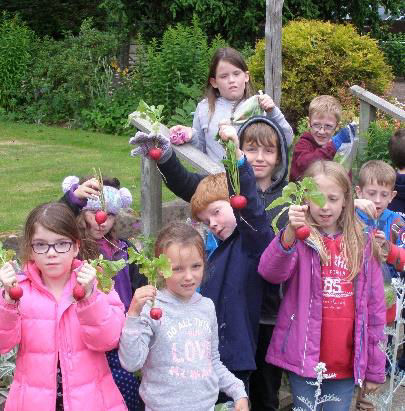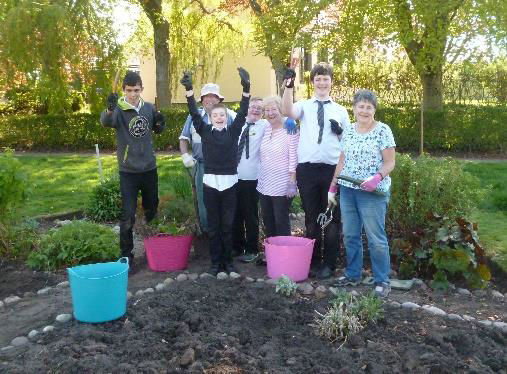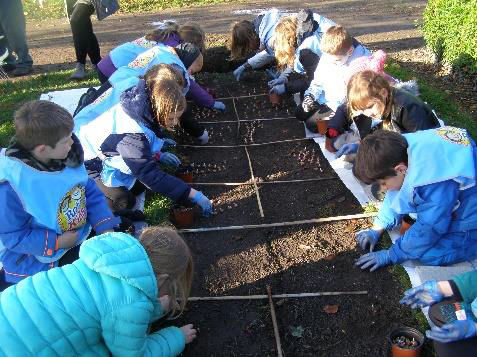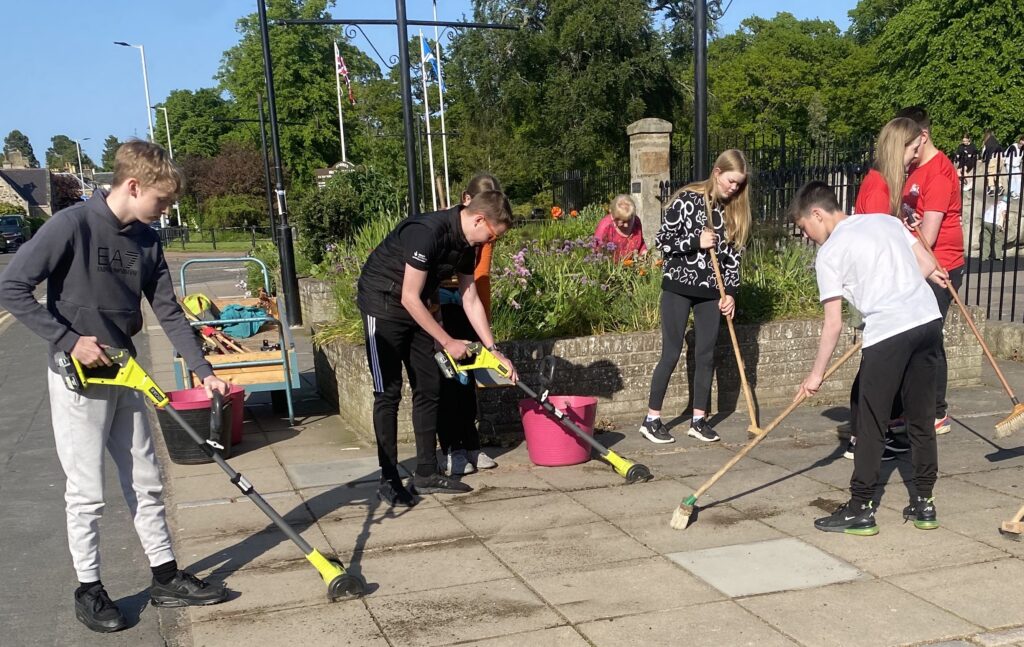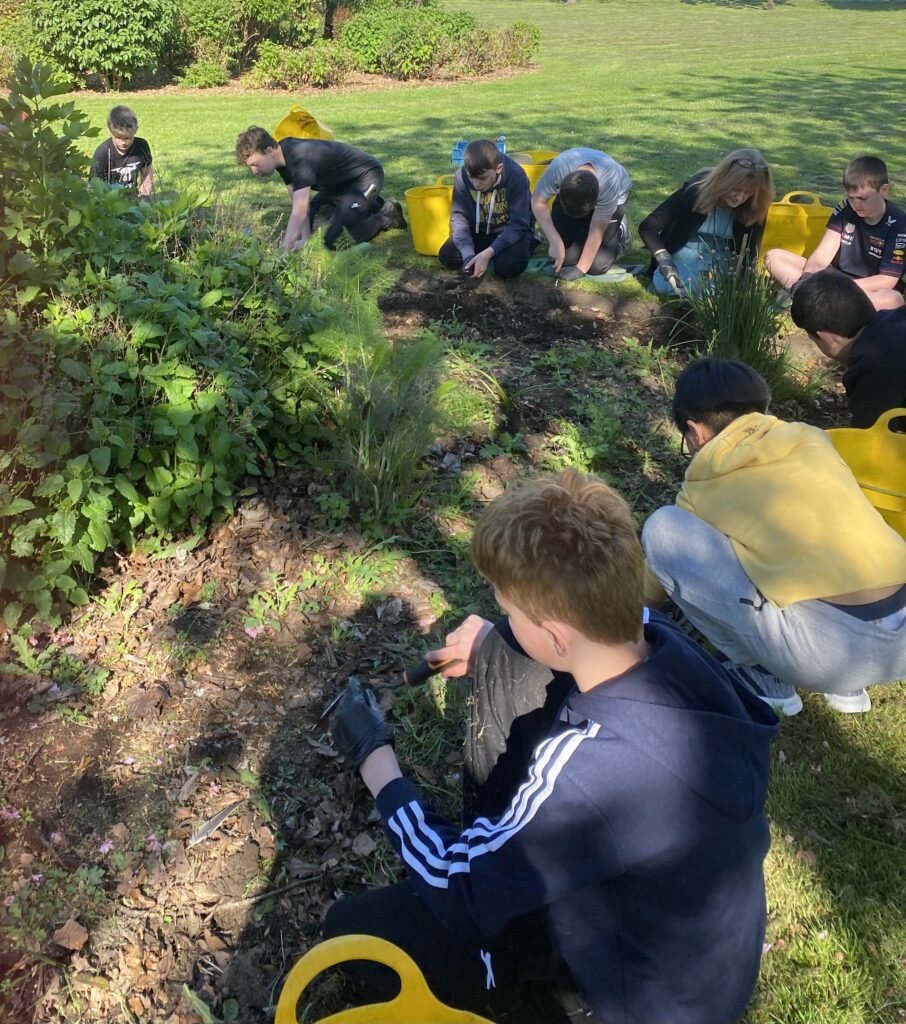Encouraging Young People
The Wee FIBbees
In March 2008 we were delighted to be offered use of a greenhouse and small garden area belonging to Moray Council to be our base. The group was formed and it was decided to call it The Wee FIBbees (the Wee Forres In Bloom bees) because they are the young members of Forres in Bloom and they are always busy looking after Beautiful Forres. In addition gardens would not exist without bees and Forres in Bloom will not exist in the future without the efforts of the young folk of today.
Tasks completed throughout this year:
- Maintaining beds and containers with Spring and Summer bedding
- Planting vegetables and eating produce
- Continue to develop the stumpery using fallen tree roots
446 Squadron (Forres) Air Training Corps
This year 446 Squadron Cadets have been volunteering with us while working on their Duke of Edinburgh Awards. On a weekly basis they have helped clear detritus from the park and paths, cleared weeds from pavements and weeded beds ready for planting.
Forres Schools
Schools in Forres participate in the Keep Scotland Beautiful ECO Schools campaign with considerable success, Applegrove and Pilmuir achieving a Green Flag.
- We are working with Anderson’s Primary on the ‘Beds for Bees’ initiative
- Anderson’s Primary Garden Club looks after beds outside the school with support from Forres in Bloom
- We worked with pupils from Forres Academy on their Enrichment days where they were working towards John Muir Awards
- P upils from P6 from Andersons Primary School have helped Forres Community Woodland Trust remove invasive species land plant native trees at Sanquhar Wood
- Pupils from all three primary schools plant barrels near their schools
- One bed at the Royal British Legion has been designed and planted by Forres Academy Additional Needs Base. They chose to plant vegetables for cooking lessons.
- Pupils from Forres Academy Additional Needs Base have gained Saltire Awards for their work with Forres in Bloom
- Anderson’s Primary 1 visited in conjunction with their work on ‘Growth’
As part of this initiative all schools encourage recycling of materials such as paper, cardboard, plastics, glass bottles, printer cartridges and vegetable waste.
A range of projects have been undertaken including:
- Growing vegetables and fruit and experiencing the process from planting to cooking and eating
- Regular litter patrols within their own school premises and in their localities as part of National Spring Clean and citizenship projects
- Creation of wormery and composting green waste
- Creation of logpile and provision of bee, bat and bird boxes to encourage biodiversity
- Installation of water butts for watering beds and boxes
- Planting seeds to attract butterflies, insects and birds to school grounds
- Creating a wildlife garden
- Planting willow features: tunnel, arbour and fedge
- A commitment to reduce energy and water consumption and reduce use of chemicals
- School Travel Cards to encourage ‘Walk to School’
